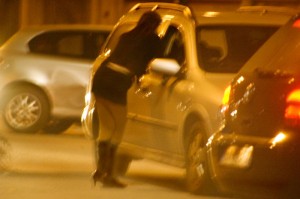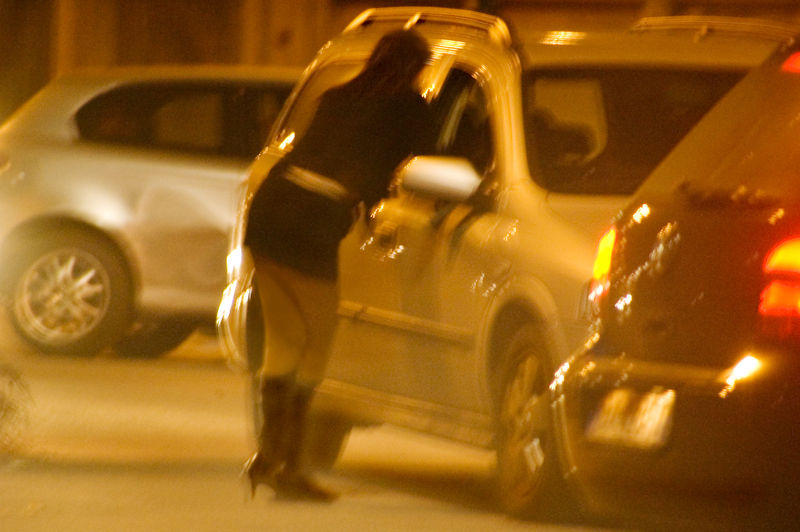By Jack Reese
Associate Judge Rosemary Higgins on Monday discussed a Cook County court program that helps convicted prostitutes into treatment instead of sending them to jail.

Higgins, 58, said WINGS (Women in Need of Gender Specific Services) court was looking for money from the county, state and federal governments to support the program. The program operates with the help of volunteers and non-profit organizations.
The court was launched in January 2011 with support from the Chicago Coalition for the Homeless, the Chicago Dream Center and other organizations. It is one of only two courts in the nation that serves women convicted of felony prostitution. Also, the program in Cook County is the largest in the nation.
“This is the most interesting thing I do,” Higgins said. “It’s the most important work I’ve done as a judge.”
Higgins has been an associate judge at the Cook County courthouse since 2003. She grew up in the South Side of Chicago and dreamed of being a lawyer. After a masters degree in criminal justice financed by scholarships and law school, she became a felony prosecutor. In 1998 and 2000 she ran to become a judge after 16 years in the state’s attorney’s office.
Higgins said she didn’t always want to work with prostitutes; the rehab program fell into her lap.
“They’re the most stigmatized and marginalized of all groups,” she said. “I didn’t want the work. I was more interested in murders and rapes.”
But Higgins said she has developed sympathy for the prostitutes who stand before her. “Nobody cares about them,” she said. “They’re disposable. We’re raising the level of awareness.”
Others involved in the program are hoping for more understanding as well.
Daria Mueller of the Chicago Coalition for the Homeless helps provide services to the women.
Mueller said the women in WINGS “have a chance to transform their lives, and are getting treated with respect and dignity, as people of worth. It’s a new approach in criminal justice that is more rehabilitative than punitive.”
Mueller also said, “The judge, public defenders, probation officers, state’s attorneys, jail personnel, case managers and advocates all have input, and everyone is trying to help the women achieve success. We are trying to work together to give women access to all the tools and resources necessary.”
Mueller added that the women are achieving their goals and making progress, getting housing, taking care of their children, dealing with addictions and staying sober, increasing their self-esteem and feelings of self-worth.
Higgins said the number of women being charged with prostitution is on the rise because they are working in more recently gentrified upscale neighborhoods.
Prostitution charges vary. For women younger than 18, prostitution has been decriminalized.
Sentencing ranges from one to three years for those older than 18. A first offense draws a misdemeanor charge, which lands a woman in jail for three days before she can go back to the streets.
Defendants who choose to enter the rehab program can go to the Chicago Dream Center, a Humboldt Park residence operated by 29 Christian organizations, or the Haymarket Center, the largest treatment center for substance abuse in Chicago.
But some prostitutes are not always sure of what they want. Higgins said some younger women are still connected to their pimps, whom they call their “fiancés,” and they are not ready to leave their lives on the streets. As they age, however, they look toward a life after prostitution.
“One prostitute told me, ‘I don’t want to die on the streets, and I know that’s where I’m headed,’” Higgins said. She encourages older prostitutes to serve as mentors for the younger women who enter rehab programs.
As many as 50 percent of all prostitutes suffer Post-Traumatic Stress Disorder, a condition resulting from abuse and life on the streets, Higgins said. The PTSD they suffer is often worse than combat veterans who have served two tours of duty in war zones, and they often struggle with drug and alcohol dependence and depression, Higgins said.
Bianca Campbell, a convicted prostitute, stood before Higgins on Monday, when she entered a guilty plea to one charge of felony prostitution. She was sentenced to two years of probation, which will require counseling, treatment for drugs and alcoholism and work toward her high school diploma.
Higgins ordered Campbell to move into the Dream Center.
“I’m grateful,” Campbell said. “I’m here to do what I want to do, not what I have to do.”
Campbell said she has a child and is ready to put her past life behind her. She said she has struggled with “issues with marijuana and other stuff.”
Higgins has talked to officials in other states that have court programs designed to help women in the sex trade. She has arranged for Ph.D. interns from the Chicago School for Forensic Psychology to give counseling to the women.
Some women who successfully complete the rehab program can have the felony prostitution charge expunged from their records, Higgins said.
Mueller said she is always looking for ways to improve the program. “We find gaps with services for those with more severe mental health issues or with severe cognitive disabilities,” she said. “We are always in need of more residential programs for substance abuse treatment, recovery homes and supportive housing programs.”
She said the women also need help with vocational training, job placement, trauma services and mentorship.

